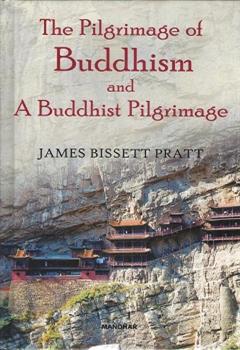The Pilgrimage of Buddhism and a Buddhist Pilgrimage
Availability :
In Stock
₹ 2,306.15
M.R.P.:₹ 2995
You
Save: ₹688.85 (23.00% OFF)
(Inclusive
of all taxes)
Delivery:
₹ 100.00 Delivery charge
Author:
James Bissett Pratt
Publisher:
Manohar Publishers
ISBN-13:
9788119139439
Publishing Year:
January 2023
No. of Pages:
772
Weight:
918 g
Language:
English
Book Binding:
Hardcover











